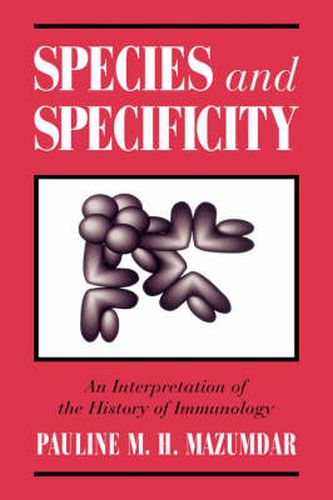Readings Newsletter
Become a Readings Member to make your shopping experience even easier.
Sign in or sign up for free!
You’re not far away from qualifying for FREE standard shipping within Australia
You’ve qualified for FREE standard shipping within Australia
The cart is loading…






In the first hundred years of the history of immunology, the question of species and specificity were the core problems of research and practice in immunology. The old botanical dispute about the nature of species, which has its roots in the classical Western thought of Aristotle, reappeared in the late nineteenth century in the disputes of bacteriologists, to be followed by their students, the immunologists, immunochemists, and blood group geneticists. In the course of this controversy, Mazumdar argues, five generations of scientific protagonists make themselves aggressively plain. Their science is designed only in part to wrest an answer from nature: it is at least as important to wring an admission of defeat from their opponents. One of those on the losing side of the debate was the Austrian immunochemist Karl Landsteiner, whose unitarian views were excluded from the state health and medical institutions of Europe, where specificity and pluralism, the legacies of Robert Koch and Paul Ehrlich, were entrenched.
$9.00 standard shipping within Australia
FREE standard shipping within Australia for orders over $100.00
Express & International shipping calculated at checkout
In the first hundred years of the history of immunology, the question of species and specificity were the core problems of research and practice in immunology. The old botanical dispute about the nature of species, which has its roots in the classical Western thought of Aristotle, reappeared in the late nineteenth century in the disputes of bacteriologists, to be followed by their students, the immunologists, immunochemists, and blood group geneticists. In the course of this controversy, Mazumdar argues, five generations of scientific protagonists make themselves aggressively plain. Their science is designed only in part to wrest an answer from nature: it is at least as important to wring an admission of defeat from their opponents. One of those on the losing side of the debate was the Austrian immunochemist Karl Landsteiner, whose unitarian views were excluded from the state health and medical institutions of Europe, where specificity and pluralism, the legacies of Robert Koch and Paul Ehrlich, were entrenched.